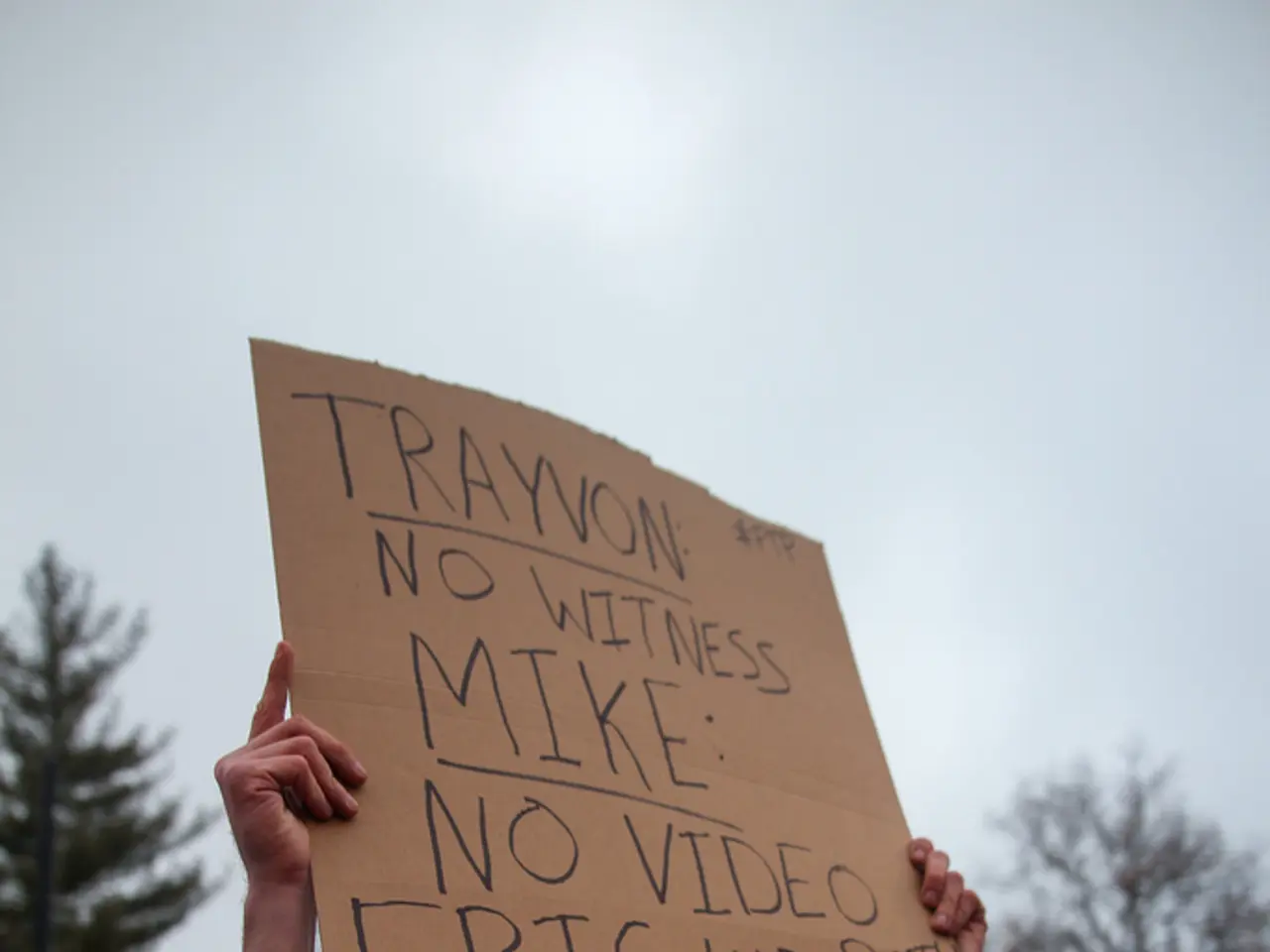Senate passes contentious Trump budget measure by slim majority
The controversial domestic policy bill proposed by former US President Donald Trump, popularly known as the "One Big Beautiful Bill," has generated significant debate and sparked controversy, particularly over its potential impact on welfare and healthcare for low-income Americans, and its implications for the national debt.
The bill, which aims to bolster Trump's original first-term tax cuts and introduces new tax breaks, such as no taxes on tips, totals approximately $663 billion in new tax cuts and spending reductions. However, critics argue that these measures could substantially increase the national debt, creating long-term fiscal challenges.
One of the most contentious aspects of the bill is its proposed reductions in healthcare for low-income Americans. This is part of broader efforts to reduce government spending on social welfare programs, a move that has raised concerns about its impact on vulnerable populations.
The bill also rolls back green energy tax credits by repealing electric vehicle (EV) tax credits and phasing out energy investment incentives, removing about $191 billion in green energy support. This shift away from renewable energy subsidies in favor of traditional energy sectors has drawn criticism from environmentalists and tech billionaires, such as Elon Musk.
In addition, the bill allocates a significant $350 billion for border security and migrant deportation efforts, supporting stricter immigration enforcement policies.
The bill passed the US Senate amid heated controversy, especially over welfare cuts and debt concerns. Its approval highlights deep divisions within political parties, particularly the Republican Party. Elon Musk, a vocal critic of the bill, has threatened to support primary challengers against Republicans who backed the bill and proposed forming a new political group called the "America Party" to influence policy and politics more effectively.
After Senate approval, the bill is now pending consideration in the House of Representatives, where its fate remains uncertain amidst ongoing debates and political maneuvering. Democrats hope to leverage public anger ahead of the 2026 midterm elections to retake the House. Polls show the bill is among the most unpopular ever considered across multiple demographic, age, and income groups.
The bill faces opposition from fiscal hawks in the House of Representatives due to $651 billion of extra deficit spending in the Senate's tweaks. Speaker Mike Johnson of the House Republicans is watching anxiously to see if the Senate adopts changes that would be hard to sell to his lawmakers. A House vote on the bill could come as early as Wednesday, and House Republicans can only afford to lose three votes. The bill will have to come back to the House of Representatives for a final rubber stamp before it reaches Trump's desk.
As the domestic policy bill navigates its way through the House of Representatives, the future of green energy subsidies, healthcare for low-income Americans, and the national debt remain uncertain, with influential figures like Elon Musk continuing to campaign against the bill.
- The "One Big Beautiful Bill," originally proposed by Donald Trump, generates heated debates regarding its potential effects on welfare, healthcare for low-income Americans, and the national debt.
- Critics also question the bill's provision for no taxes on tips, concerned it could increase the national debt and create long-term fiscal challenges.
- Another contentious issue lies in the bill's proposed reductions in healthcare for low-income Americans, which some argue could negatively impact vulnerable populations.
- The bill also repeals electric vehicle tax credits and phases out energy investment incentives, potentially stifling the growth of the green energy sector.
- Apart from this, a significant $350 billion is allocated for border security and migrant deportation efforts, highlighting the bill's focus on stricter immigration policies.
- Elon Musk, a critic of the bill, has promised to support primary challengers against Republicans backing the bill and proposed forming the "America Party" to influence policy and politics more effectively.
- The bill faces opposition from fiscal hawks in the House of Representatives, especially due to additional deficit spending, making its future uncertain amidst ongoing debates and political maneuvering.




